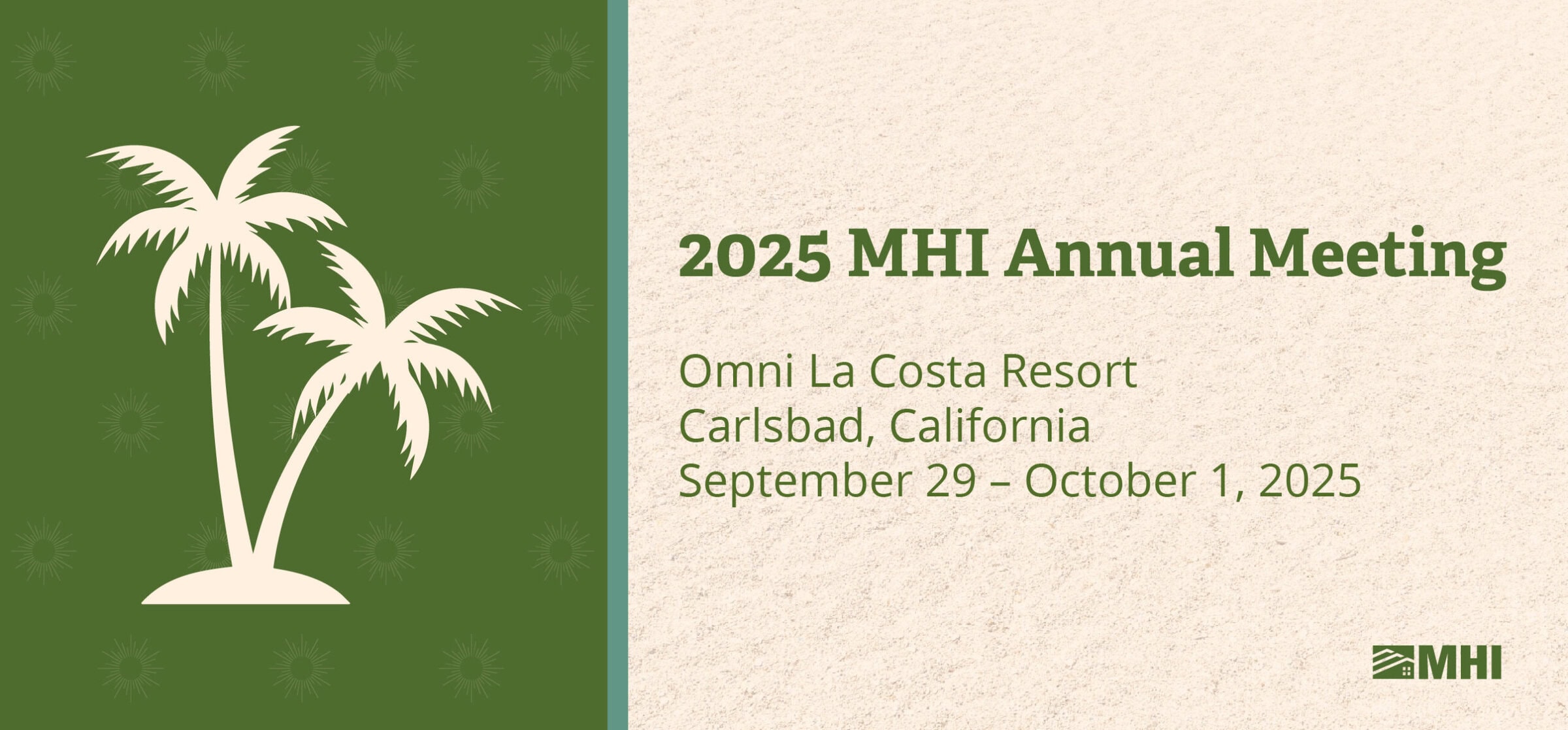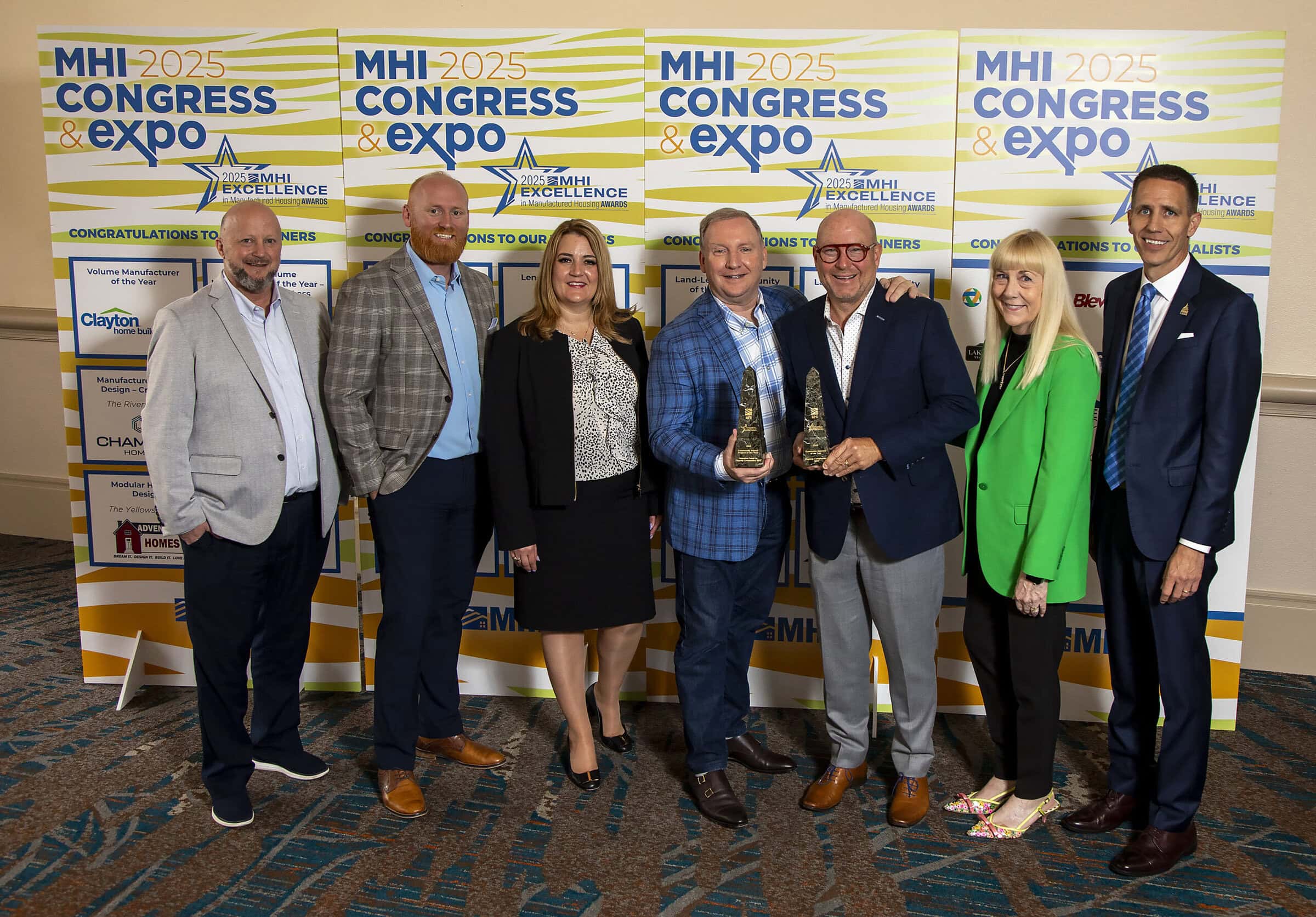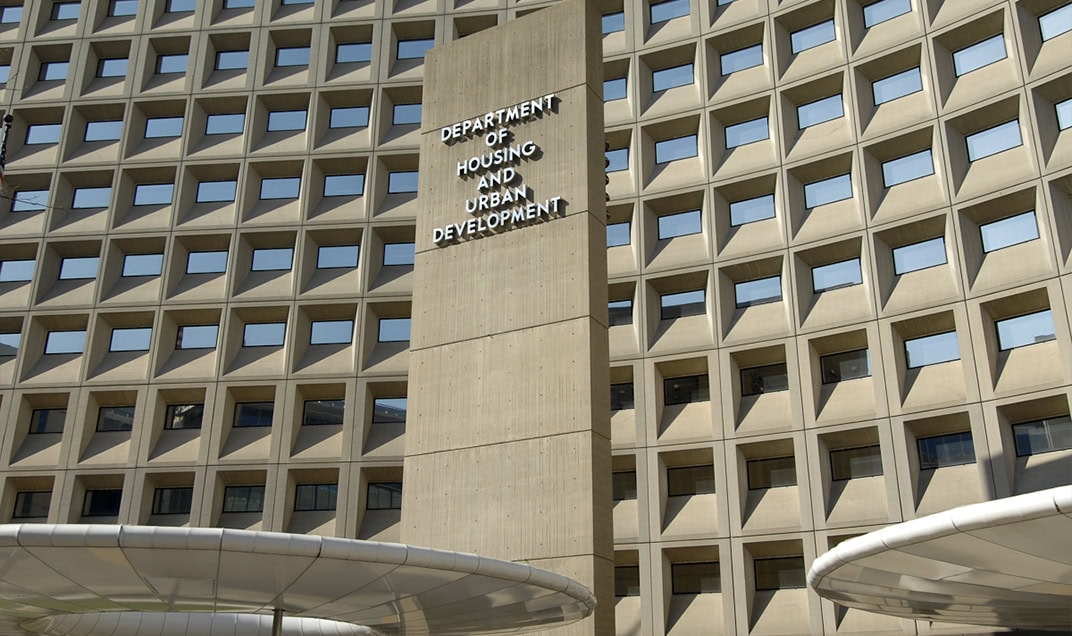Keep Exploring
Related Posts
2025 MHI Annual Meeting Registration Open
Registration is now live for the 2025 MHI Annual Meeting. Join fellow MHI members September 29 – October 1 at the Omni La Costa Resort in beautiful Carlsbad, CA for the largest gathering of MHI members.
HUD’s Innovative Housing Showcase “The American Home is the American Dream” Returns to the National Mall
Secretary Scott Turner announced the return of the U.S. Department of Housing and Urban Development (HUD)’s Innovative Housing Showcase from September 6 – 10 to the National Mall in Washington, D.C. Previously, the Innovative Housing Showcase was scheduled to take place May 30 – June 1.
MHI Announces 2025 Excellence in Manufactured Housing Award Winners
MHI announced the 2025 Excellence in Manufactured Housing Award recipients last week during the MHI Congress & Expo in Orlando. The annual awards program honors MHI members in the manufactured and modular home industry who provide outstanding products, customer service, creative solutions, and state-of-the-art homes
MHCC Holds Special Meeting to Discuss Multi-Story Manufactured Homes Without Upper Chassis
On Tuesday, the Manufactured Housing Consensus Committee (MHCC) convened a special teleconference to review and comment on HUD’s proposed standards for multi-story manufactured homes that would not require a permanent chassis on upper floors.
2025 MHI Annual Meeting Registration Open
Registration is now live for the 2025 MHI Annual Meeting. Join fellow MHI members September 29 – October 1 at the Omni La Costa Resort in beautiful Carlsbad, CA for the largest gathering of MHI members.
MHI Submits Comment Letter to MHCC Supporting HUD’s Proposal to Remove the Requirement for a Permanent Chassis on Multi-Story Homes
The Manufactured Housing Institute (MHI) submitted a comment letter to the Manufactured Housing Consensus Committee (MHCC) supporting the U.S. Department of Housing and Urban Development (HUD)’s proposal to modernize the definition of manufactured homes by removing the outdated requirement for a permanent chassis on multi-story homes. This change would enhance design flexibility, reduce costs and expand housing options.





